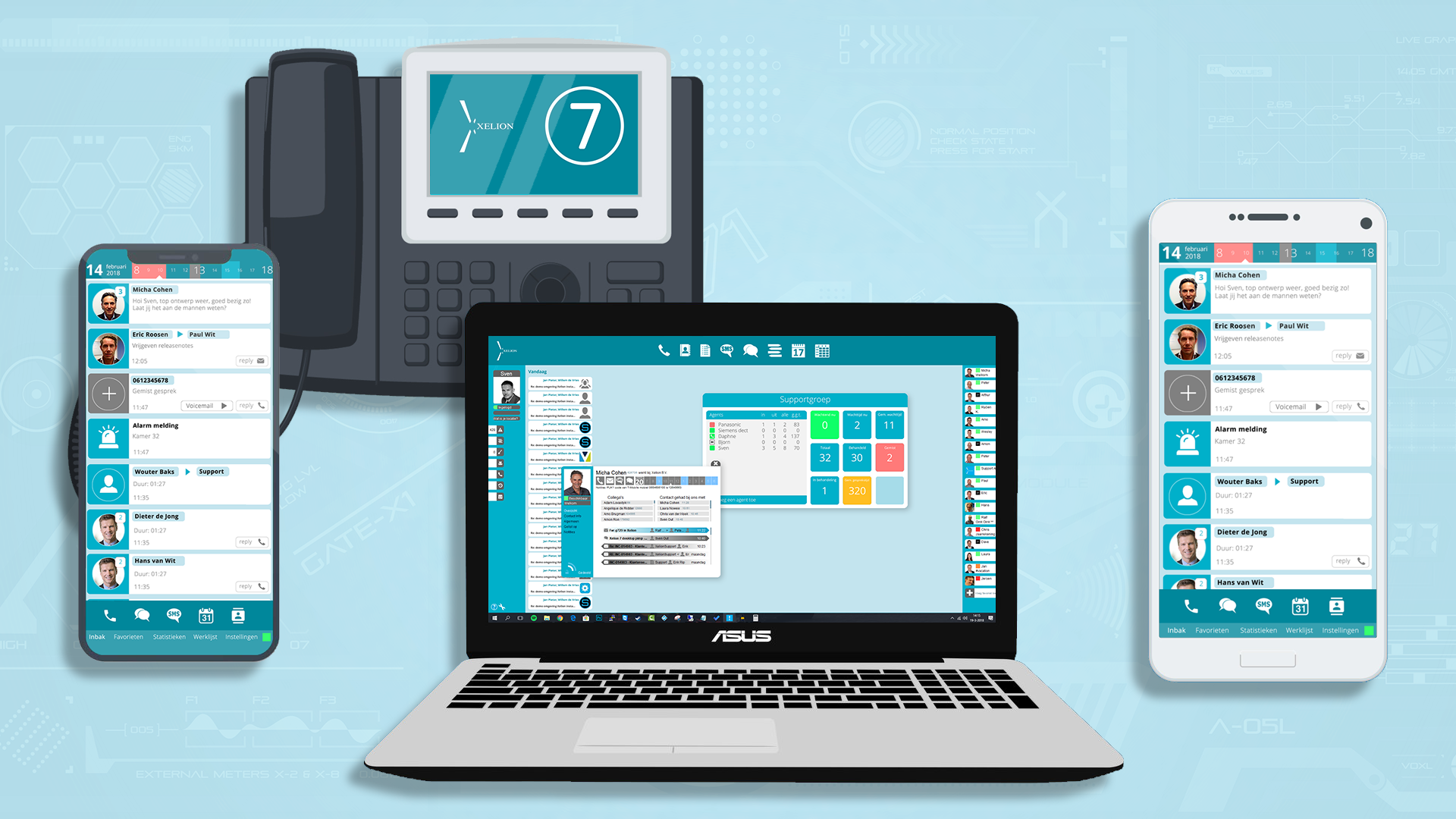Here's why softphones are the future
The pandemic has seen an enormous increase in home working, with corresponding changes in phone usage

‘Endpoint’ is telecoms jargon for the final piece of equipment used in a phone call to speak and listen. In the past this was invariably a desk-phone referred to in another piece of comms jargon as a POT – perfectly ordinary telephone.
Desk-phones were an important source of revenue for manufacturers and suppliers of on-premise PBX phone systems. They were usually proprietary to the manufacturer’s phone system, giving the manufacturer a monopoly on supply. This made desk-phones disproportionately expensive, with feature phones costing hundreds of pounds.
But over the past decade on-premise PBX phone systems have been replaced by hosted telephony services. There are a number of compelling reasons for this switch. A hosted service requires no large up-front capital expenditure and as a business service it is a tax-deductible expense, unlike capital expenditure, which is only partially tax allowable. Start-up businesses and SMEs, which move premises frequently in their early years, can simply login to the cloud telephony service at a new location, whereas an on-premise PBX system has to be uninstalled and reinstalled by a service engineer, which is time consuming and expensive.
- Here's our list of the best business smartphones right now
- We've built a list of the best VoIP services out there
- Check out our list of the best business phone services available
Dave Reynolds is UK Managing Director at Xelion
However, the crucial reason for using a hosted telephony service in the current pandemic is that it makes it very easy to work from home, or anywhere, that has a reliable internet connection. Remote and home workers have access to the company phone system functionality just as if they were in the office and are able to see who is online and if their line is engaged.
Businesses using a hosted telephony service have usually provided staff with a desk-phone. As almost all hosted services are hardware agnostic, these phones have been available from a number of suppliers including Cisco, Yealink, Snom, Aastra, Polycom, Htek, Gigaset, Tiptel and more. This competition has reduced the cost of desk-phones considerably, but there is an alternative ‘endpoint’ that eliminates the need for a desk-phone completely.
A ‘softphone’ is basically a client application providing a virtual phone on a user’s notebook or mobile. A user can either use their device’s mic and speakers, or for greater privacy a headset. Incoming calls ‘screen-pop’ with the caller ID displayed so the user can answer the call or push it to voicemail.
Softphones offers all the traditional telephony functions users expect alongside the latest unified communication features including presence, instant messaging, global address books, call recording management and much more. Feature rich, softphones replace the need for customers to have multiple tools and portals to manage their communications.
Are you a pro? Subscribe to our newsletter
Sign up to the TechRadar Pro newsletter to get all the top news, opinion, features and guidance your business needs to succeed!
With all features screen based, it is much easier to setup functions, than on a conventional phone. For example, a user could choose to direct all calls to voicemail between 10.00am and 12.00pm and again from 2.00pm to 4.00pm to have uninterrupted worktime. While it could be technically possible to set this up with a desk-phone, it is far easier and intuitive to do it onscreen with help prompts available. Consequently, softphone clients are versatile communications endpoints designed to be the central hub for all business communications.
The pandemic crisis has given softphone usage an enormous boost. A LinkedIn poll that we recently conducted asked respondents if they used a desk-phone or softphone to make business calls. Of the 101 respondents 22% preferred to use a desk phone while the overwhelming 78% majority opted for softphone use. This very high number of softphone preferences is due to the increased use of softphones by employees now working from home, because of the pandemic.
With space for office work at a premium in most homes, finding room for a desk-phone can be impractical. Desk-phones have to be plugged in to a router with a cable, whereas softphones can be used with wi-fi. Most home workers will be using a notebook, sometimes at a desk or table, but often balanced on the lap while sitting on a sofa, so a desk-phone is not a sensible option.
There is also a generational element to softphone use. Mobile phone use means that workers now have become used to the idea that a phone is not something in a fixed place, but something you carry around with you. So in addition to softphone apps for computers, hosted telephony providers also offer apps for Android and iPhone use, allowing users to access the company phone system from their mobile device.
This is bad news for manufacturers of desk-phones, but good news for business owners because license costs for softphones are usually less expensive than the cost of a physical phone and license. Licensing terms are a crucial factor. If the license cost is by device and not by user, this can make the hosted service prohibitively expensive for businesses that have to pay to license a softphone client, mobile app and physical phone for each member of staff. With the huge boom in mobile working licensing multiple devices is a real cost consideration for customers.
It is also important to check that the softphone is native to the hosted service and not a third-party add-on. This can make the softphone a clunky afterthought. It is also important to select a service that has the same look and feel for both the computer softphone and the mobile app. Otherwise users have to learn two different protocols for accessing the same function.
The pandemic has accelerated a lot of social trends: online shopping, the cashless economy and home working. As well as high-street shops and office blocks, the desk-phone looks to be another casualty of the pandemic.
- Here's our list of the best business phone systems on the market
Dave Reynolds is UK Managing Director of the Xelion hosted telephony service. He loves working with new technologies with a particular interest in Unified Communications.
